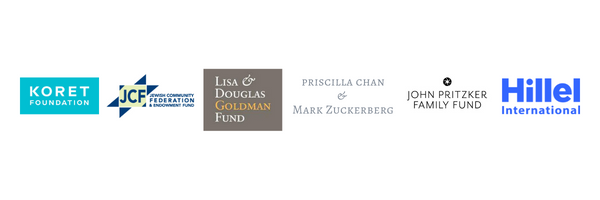|
BY ROGER FEIGELSON | AUGUST 2, 2023
As I enter my sixth month as executive director of San Francisco Hillel, I think back to my second week here, when I experienced what is all too common on the campus of San Francisco State University — antisemitic and anti-Israel sentiment. That problem is one of our main areas of concern at S.F. Hillel, but it is not the only challenge for the graduate and undergraduate students we serve at S.F. State, University of San Francisco, UCSF and other schools. Many of our students have trouble meeting their basic needs, some struggling with food insecurity and even homelessness. Students come to us for assistance because they desperately want to focus on their studies and not worry about stretching their work-study earnings to pay rent or purchase groceries. One student at UC Law San Francisco told us that their work-study job was not allowed to exceed 10 hours a week, so their earning potential was capped, forcing them to rely on their limited savings to pay rent. In another case an S.F. State student said, “I have been working 30 hours a week with school, which still doesn’t cover my basic needs, and I’m now accruing debt.” In the most heartbreaking cases, students go hungry. “I’ve been cutting back on my food spending. The food here is very expensive. … I don’t get lunch and usually feel hungry through the day,” a University of San Francisco student told us. One USF student’s family situation weighed heavily on them. Their father was unemployed, and their mother was the sole income provider, which included supporting a younger brother in high school and their 80-year-old grandmother. A Covid-19 layoff forced the mother into early retirement. The student’s anxiety was elevated as they worried about all the bills they had to pay, between living expenses and tuition, jeopardizing their ability to focus both on college and their own health. They took two jobs in addition to enrolling as a full-time student, as well as researching available scholarships. Now I don’t have to worry about how I’m going to eat tomorrow. I can focus on school instead. International students at S.F. State and USF have additional challenges: restrictions on getting jobs in the U.S. As one USF student told us, “I am dependent mostly on food pantries and am not able to buy groceries myself much. I would like to buy some meat and fruits for myself [items not in food pantries] to get enough basic nutrients for the upcoming month. Next month, I should be working on campus, so I can better take care of my needs. However, finding a job on a small competitive campus as an international first-year student was pretty challenging and took me longer than expected.” Thanks to community partners such as the Jewish Community Federation and Endowment Fund, we can issue some small grants to assist these students to address these situations. The money also allows us to run grocery “shuks” for students to come to Hillel and shop (for free) for perishable and nonperishable items. We’ve hosted two of these and had upward of 30 students attend each. With this amazing support, we are able to make a difference. After receiving assistance, one student said, “Now I don’t have to worry about how I’m going to eat tomorrow. I can focus on school instead.” And then there’s mental health: Our students continue to face a crisis in securing mental health support. Though campus resources are stretched, we can offer a limited number of sessions to students thanks to a partnership with Jewish Family and Children’s Services. It’s never enough. Some Hillels have funding or endowments to have mental health professionals on staff, but we’re not there yet. This support is a critical part of what we do and is embedded at the start of our new mission statement: “We’re here to support all Jewish college students in San Francisco and fortify the future of the Jewish people.” If you’ve read the Pew reports, you know Jewish engagement has been on the decline. S.F. Hillel is on the front line of solving that problem. While our mission is to meet each student where they are in their Jewish journey — to help them explore their Jewish identity, help them build Jewish community and, in turn, build them into our future Jewish leaders — we can’t do that if they’re hungry and in turmoil. We must support them with their basic needs, too. It’s not only the right thing — the Jewish thing — to do, but it helps exemplify to them the importance of being part of the Jewish community and how important it is to live our Jewish values and be there for one another. jweekly.com/2023/08/02/some-jewish-college-students-face-a-more-basic-problem-than-antisemitism-hunger/ Comments are closed.
|
AboutCheck out what our community is thinking and doing. Archives
August 2023
Categories |
CONNECT WITH Us
We are supported through meaningful communal donations and our very generous Funders.

 RSS Feed
RSS Feed
